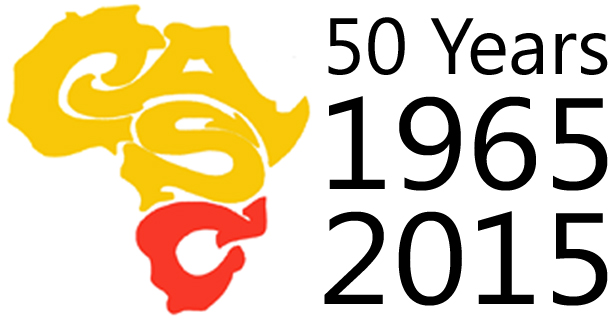The Audrey Richards Distinguished Public Lecture in African Studies 2019
Duration: 1 hour 10 mins
Share this media item:
Embed this media item:
Embed this media item:
About this item

| Description: |
This lecture was given by Professor Akosua Adomako Ampofo at the Faculty of Law on Thursday 2 May 2019.
Akosua Adomako Ampofo is Professor of African and Gender Studies at the Institute of African Studies, University of Ghana (UG). She considers herself an activist scholar, and at the heart of her work are questions of identity and power—within families, institutions, political and religious spaces, and the knowledge industry. In her current work on black masculinities, she explores the shift-ing nature of identities among black men in Africa and the diaspora. Earlier work on masculinities has explored the ways in which the discourse of “men of God” (i.e religious leaders) becomes a meta knowledge and (re)defines femininity. In 2015 she presented the African Studies Review distinguished lecture, subsequently published in 2016 as “Re-viewing Studies on Africa, #Black Lives Matter, and Envisioning the Future of African Studies” in African Studies Review (59)2: 7-27. She co-edited, with Cheryl Rodriguez and Dzodzi Tsikata Transatlantic Feminisms: Women’s and Gender Studies in Africa and the Diaspora. Lanham, MD, Lexington Books (2015). In 2005 she became the foundation Director of the University of Ghana’s Centre for Gender Studies and Advocacy, and from 2010-2015 she was the Director of the Institute of African Studies. Adomako Ampofo is President of the African Studies Association of Africa http://www.as-aa.org/index.php/officers; Editor-in-Chief, Contemporary Journal of African Studies; Co-Editor, Critical Investigations into Humanitarianism in Af-rica blog, www.cihablog.com as well as African Studies Review. She is a fellow of the Ghana Academy of Arts and Sciences. |
|---|
| Created: | 2019-05-16 14:21 |
|---|---|
| Collection: | Centre of African Studies |
| Publisher: | University of Cambridge |
| Copyright: | Victoria Jones, Akosua Adomako Ampofo |
| Language: | eng (English) |
| Keywords: | African Higher Education; Mr Eazi; Knowledge production; Pan Africanism; |
| Abstract: | Accra to Lagos; Lagos to London: African Engagements with the Higher Education industry
(*culled from the titles of two music volumes by Mr Eazi) Mr Eazi is a Nigerian-born, Ghana-based artist who, with his track “Accra to Lagos” on the album Life is Eazi, Vol. 1 “plays tour guide, assembling the sounds and energies of two dynamic cities—Accra and Lagos—into an electrifying mixtape” (Apple music). In Life is Eazi, Vol. 2, “Lagos to London”, the first 9 tracks portray Lagos and the last 6 the London side of his story. Oluwatosin Ajibade (his legal name) is not the first, or even the most well-known African artiste to bring African-flavoured fusions to the table. His vibe has been hailed over his lyrics. And yet, both vibe and lyrics provide interesting metaphors for the ways in which knowledge travels—to and fro, around detours, managing road-blocks, discovering delicious cul-de-sacs, protecting little lanes, announcing new routes. The decolonizing project in higher education has engaged significantly with the valorization of knowledge; highlighting, unpacking, interrogating the who-says-what-to-whom epistemologies and methodologies in our universities. This lecture looks at how Africans are engaging with higher education, what conversations we bring to the table, what form they take and what they destabilize or even transform both on our campuses and the larger “industry”—in teaching and research, publishing, international collaborations, funding and so forth. What, for example, does “international” mean, what kinds of conversations are held and with whom, and what do these conversations convey about the place of Africa in the larger higher education ecosystem? Knowledge production and sharing outside of, or parallel to the ivory tower, as well as what Mjiba Frehiwot has referred to as the “blue collar” side of pan-African work, will also be examined: are there more conversations and collaborations than are recognized, and what do these trends portend for our professional sites and selves? |
|---|---|

